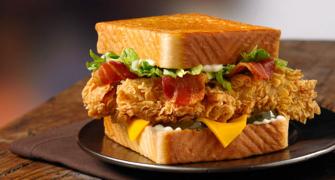As controversy plagues foods again, brandification will bridge the trust deficit, critical for stakeholders, says Ambi Parameswaran.
 The latest product to come under attack of the CSE (Center for Science and Environment) is the humble bread.
The latest product to come under attack of the CSE (Center for Science and Environment) is the humble bread.
As the big brands find themselves under attack, all bakeries around the country will be feeling the heat.
Reports also indicate that FSSAI (Food Safety Standards Authority of India) regulations permit some amount of potassium bromate, while the CSE says it is a carcinogen.
My first question is to both CSE and FSSAI: Did the two of you talk to each other before issuing the report to the press?
Do you have a joint action plan on how to get it removed from the permitted list of ingredients?
And do both of you report to the same government of India ministry?
That said, let me move to a bigger topic that we in need to address.
Professor Kevin Lane Keller has a term “brandification” to describe the level of branding in product categories.
So if you were to take a product like cars or two wheelers, the category is 100 per cent “brandified”.
If we go to a category like soaps or toothpaste the brandification may drop to less than 75 per cent.
In India the lowest level of brandification is in food products.
If we take cooking oils, only about 30 per cent may be consumed as branded packaged cooking oils.
In the case of atta or bread, even if we include store brands, the level of brandification is probably in single digits.
Branding is critical for the development of any category.
A brand stands for a level of quality that saves consumers a great amount of search time.
For the manufacturer, a brand ensures loyalty and a price premium. Parle G is a living example of how a brand has managed to cut across all geographical, culinary and language boundaries to become a truly national processed packaged food brand.
They achieved this by focusing on acceptable quality at an affordable price.
If we take this mantra, acceptable quality at an affordable price, many other categories can be tapped and brandified.
In a vast country like India with huge unorganised trade and millions of small retailers, a food product, unlike soap or a detergent, starts with an inherent disadvantage.
It has a limited shelf life and its taste rapidly declines.
While doing a competitive strategy study in the food category, I remember a mantra of one of the large snack manufacturers: never supply goods to a retailer who is more than 200-300 km away from the factory (I could be wrong about the exact distance though). Food products have to be made, shipped and consumed in a matter of days.
Manufacturers are therefore always fighting against time to ensure that their products are tasty and edible when it reaches the final destination — the consumer’s mouth.
It is here that ingredients like potassium bromate play a role in preserving the taste of the bread.
The food sector was reserved for small scale and most big players had to resort to sub-contract manufacturing through small units.
While this is a laudable objective from the point of view of business and job creation, it adds a huge burden in terms of supply chain efficiency, GMP (good manufacturing practices) and regulatory supervision.
We, therefore, have several issues facing us. The country desperately needs reforms to kickstart the food processing industry.
We need world class large manufacturing plants that can make breads, biscuits, buns and more.
We need powerful brand building efforts to ensure consumers smoothly migrate to packaged branded foods, even if they have to pay a minor premium.
We also need these brands and plants to absorb all the foodgrains that are spoilt or wasted.
We must guard against a new era of food policing that has its own set of harmful side effects and the government needs to take a more long-term holistic view.
Ambi Parameswaran is brand strategist and founder brand-building.com.










